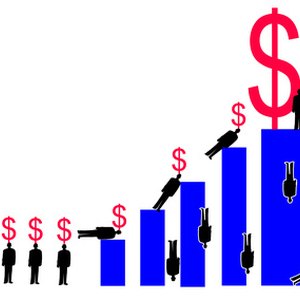
Three different categories of factors affect stock price movements. The first category includes factors relating to the company itself, such as its balance sheet, earnings and profitability, sales forecasts and position within the industry. The next category includes factors relating to the larger economy, such as legislative changes, economic climate and global issues. The final category has to do with investor emotions, perceptions and confidence levels, also known as fear and greed.
Fundamental Factors
Most experts believe that the expected future earnings of the company, often expressed as a ratio of stock price to earnings (“PE” ratio), is a fundamental driver of price. But experts might also look at other information, such as whether all of the shares added together are worth less than the company’s net assets (price to book ratio), or how much a dollar of sales costs in terms of stock price (price to sales ratio). These types of information provide analysts with a rational way to compare one stock against another.
Economic Factors
Even when an individual company has no change in its own fundamentals, its stock price can be affected by changes in the overall economy. For example, in the wake of the housing bubble not all banks had the kinds of fundamental issues affecting Citigroup. Yet most bank stocks, regardless of their fundamentals, lost value during that time. As another example, news about Greece’s debt issues in 2010 caused U.S. stock markets to swoon, since the news generated significant uncertainty about how financial institutions and governments would respond.
Greed

The effects of human emotion cannot be overstated as a factor in stock prices. Greed played a large role in the rise of stock prices during the so-called “dotcom” bubble of the 1990s as well as the more recent housing bubble in the early 2000s. In both cases, investors and financial firms alike believed that the rules had fundamentally changed, and that prices would only go up regardless of traditional signals. For Internet companies, particularly, stocks made huge gains without much to show for earnings.
Fear
Fear can keep investors on the sidelines, even in the face of positive rational factors. Many analysts study and report on investor confidence as a measure of whether investors will buy or stay on the sidelines in cash. As reported by State Street’s Investor Confidence Index, which measures the risk in actual investor portfolios, a low confidence rating indicates a greater likelihood that stock prices will drop or stay depressed.
References
Writer Bio
Julia Thomson began writing professionally in 1996. Her work has appeared in "Stage Directions," "Phoenix New Times" and "The Valley Callboard." Thomson has expertise in investing and personal finance, with three brokers' licenses and certification as a budget counselor. She holds a Master of Music from Indiana University.

